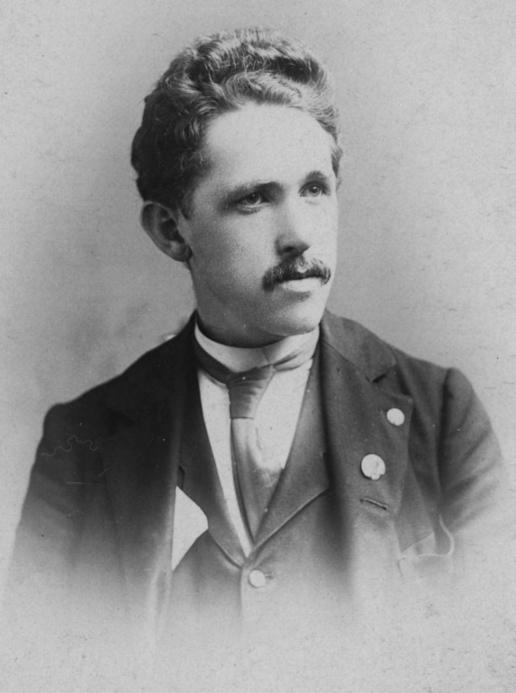An untitled excerpt from ‘Discontent: Mother of Progress‘, Home, Washington, April 16, 1902
I have always taken pains to make it clear that my sympathies were decidedly with organized labor. No matter what their imperfections, or the faults of some of their leaders, the trades unions have unquestionably rendered valuable service to the cause of labor, and therefore to the cause of progress. Their piece-meal strikes and boycotts are of little or no real and permanent effect in improving the condition of labor; but give a breathing space, blaze the road to united action to secure gains of a more substantial nature, and teach something of the much needed lesson of solidarity.
It would be idle flattery to assert that the average intelligence of the working class in this country today is of a very high order. There are, indeed, more bright and thoughtful minds among the wageworkers of the country than the partisans of capitalism would like to believe; but the general condition is one of dense ignorance.
More shame to those who have assiduously ministered to this state of affairs, by fostering conditions which deny to the toiling masses, on whose broad shoulders the whole superstructure of our proud civilization rests, the time and opportunity to avail themselves of the means of mental improvement!
The trades union, taking these men and women just as they are, cannot be expected to transform them into Platos or Bacons, all at once. It is a primary school of social study, and as such fulfills its mission as well as circumstances permit. Hence most radical thinkers approve of its work, although they may decidedly disapprove of certain of its acts.
From this standpoint, I must express my emphatic dissent from the theory that the labor question can be brought to its solution by a mere diminution in the number of laborers.
I am surprised to see that even a large section of the Socialist press seems inclined to adopt the slogan of the notorious demagogue, Denis Kearney. If we were living under a rational social and industrial system, there would be ample room in this country for all the Chinese who might choose to come to there shores. Geary laws are as worthless as other palliatives, besides encouraging a totally vicious race prejudice. The Chinese are our brothers, just as much as the rest of the world; and no conception of society can be considered satisfactory which does not take this into account.
Note by Ed. (2025)
As far as I’ve yet seen, the white anarchists of the Home Colony in the State of Washington never specifically addressed in their newspapers the ethnic cleansing of Indigenous and Chinese people that had occurred in the area not long before they arrived. They spoke out against American imperialism and racism on the continent and abroad but not where it hit closer to Home, where it had made their new habitation possible.
Also
The Curse of Race Prejudice, by James F. Morton Jr. (1906)
Japanese and Chinese Exclusion or Industrial Organization, Which?, by J. H. Walsh (1908)
The Yellow Peril, by Industrial Worker (1913)
Nationalism and the Road to Happiness for the Chinese, by Ba Jin (1921)
Chiang Kai-Shek and the Communists in China, by Marie Louise Berneri (1942)
The Chinese Anarchist Movement, by Robert Scalapino and George T. Yu (1961)
Viewpoint of People Living on Puyallup River, by Ramona Bennett (1970)
Proclamation of the Puyallup Tribe on the Repossession of the Cushman Indian Hospital Lands (1976)
An Interview with Ba Jin, by Philip Short (1977)
Anarchism in the Chinese Revolution, by Arif Dirlik (1991)
Chinese Anarchists in the 1920’s USA, by Mitch Miller and Joseph Spivak (2006)
US Immigration History Timeline, by Immigration and Ethnic History Society (2019)
Portland’s Shameful Anti-Chinese Violence, by Steve Law (2020)
When West Coast Cities Tried to Drive Out Their Chinatowns, by Jessica Pearce Rotondi (2021)
The Best Feminist You’ve Never Heard Of: He-Yin Zhen, by Zoe Baker (2021)
Translations of Selected Articles of Pingden, by Liao (2025)
May Day and Colonialism, by K. C. Sinclair (2025)
Squaxin Island Tribe Museum Library and Research Center
About Our Tribe, by the Puyallup Tribe of Indians
Denis Kearney (1847–1907), from Wikipedia
James Ferdinand Morton Jr. (1870-1941), from Wikipedia
Chinese Exclusion Act of 1882, from Wikipedia
Tacoma Expels the Entire Chinese Community on November 3, 1885, by History Link
Geary Act of 1892, from Wikipedia
Anti-Chinese Violence in the State of Washington in the 19th Century, from Wikipedia
Anti-Chinese Sentiment in the United States, from Wikipedia
Anarchism, Race, and Free Expression in Home Colony Periodicals, 1897–1908, Nhat Hong
What is Fascism? (What is Democratic Colonialism?)
140th Anniversary of the Tacoma Chinese Expulsion Walk for Reconciliation
Recommended Reading
Deconstructing Settler Socialism: Anarchism and the Internationals in the Wild West, by Gia Vogerl (2025)
Published by Historical Seditions and available wherever fine anarchist books are sold.

